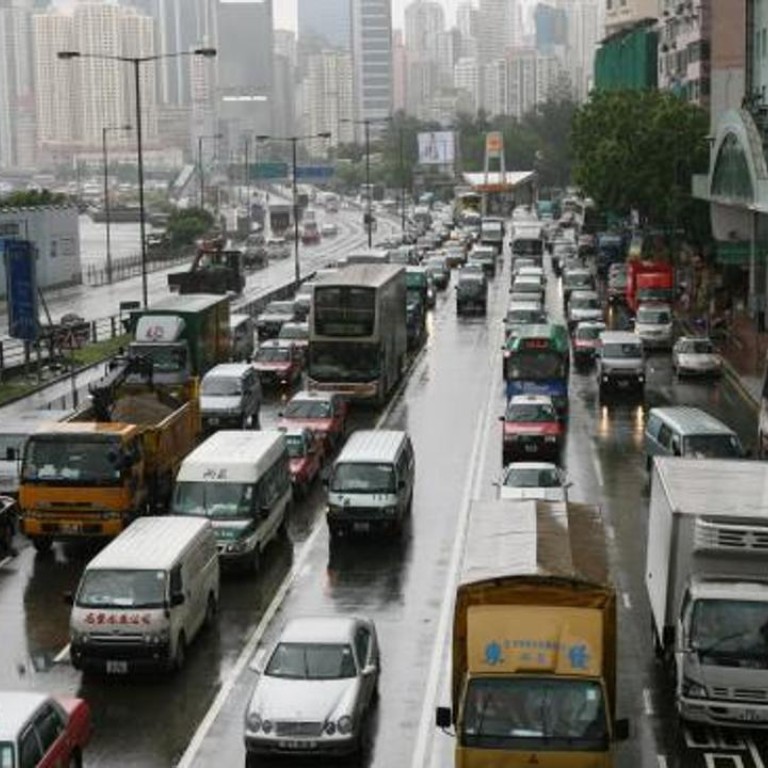
Hong Kong’s perennial traffic jams can and should be cleared
We can either continue to get stuck behind the wheel and resign ourselves to the belief that nothing can and should be done, or we can try out what we believe is right but have lacked the will to do
Traffic congestion in Hong Kong has become so serious that passengers may soon be better off walking. During peak hours, the average vehicle speed in some major roads is as slow as 10km per hour, not much faster than going on foot. Solutions have been thoroughly debated over the past few decades but regrettably little progress has been made. The need for urgent policy intervention is obvious. Launching a three-month public consultation on the controversial electronic road pricing scheme, along with heftier fines for congestion-related traffic offences, Secretary for Transport and Housing Anthony Cheung Bing-leung rightly said that the question was no longer whether or not we should do something; but how to turn the answers into reality. The minister is to be commended for his courage and determination to push ahead with what has been long overdue.
The merits of a levy for driving into heavily congested districts have been well recognised around the world. In the case of London and Singapore, traffic volume in the toll zones fell by 16 per cent while speeds improved by some 26 per cent.
Hongkongers could have benefited similarly decades ago had policymakers at the time been more resolute in tackling the problem. The charging scheme was first tabled as early as the 80s, but was never adopted because of privacy concerns and other technical difficulties. These may have been valid obstacles in the past, but with better safeguards and technology nowadays, there is no further excuse to dodge the levy.
Equally important is the punishment for congestion-related offences. It is absurd that the fine for illegal parking has remained unchanged at HK$320 for more than two decades. The proposed 50 per cent rise to HK$480 is only tied to inflation. With more than one million tickets issued each year, the fine is no deterrent.
It is disappointing that some transport traders still resist the adjustment and blame the government for insufficient parking spaces instead. The truth is that the number of vehicles has surged by 30 per cent to about 700,000 during the period. While more parking spaces are needed, the penalty should be strong enough to make drivers think twice before leaving their vehicles anywhere they want. Heftier fines should be considered if the new ones, to be enforced by 2017, fail to improve the situation.
Our choice is clear. We can either continue to get stuck behind the wheel and resign ourselves to the belief that nothing can and should be done, or we can try out what we believe is right but have lacked the will to do.

